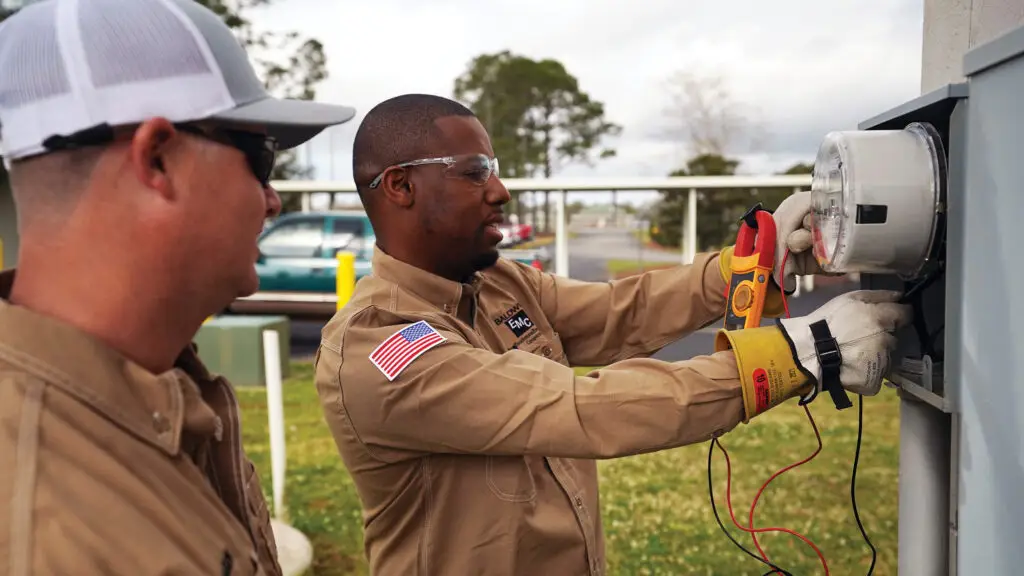Energy careers are uniquely stable and innovative
By Paul Wessland
The electricity in your home can seem like an impossible miracle to explain. But one way to understand it is to think about the variety of skills and job roles it takes to make that power happen.
That kind of thinking can also be handy if you or someone you know is looking for a promising career.
Running electric utilities today takes just about every skill imaginable. Some jobs call for the physical ability to climb a utility pole, others the technical know-how to create intricate cybersecurity systems. Some require the interpersonal skills of talking with a co-op member about how they can lower their electric bill, others the logistical knowledge to get essential equipment delivered through a challenging supply chain.
An industry that depends on such a vast range of abilities offers job seekers a variety of career opportunities.

Careers in Energy Week is October 16-20, 2023. To highlight this unique industry and the many career paths it offers, here are five ways the unique characteristics of electric co-ops make them a great place to work:
Stability. You can count on homes and businesses needing electricity now and in the future. One analysis predicts electricity demand will grow even faster in the 2020s than it has the previous two decades. Energy careers offer excellent benefits and paths for career advancement. Employees typically stay in the industry more than 15 years.
Excitement. While utility work is reliable, it’s also at the cutting edge of innovation. Electrification is the centerpiece of the push for greener energy. The number of electric vehicles is doubling every year, which means new workforce skills are needed to figure out how to keep all those cars and trucks plugged in and charged up. Two of the 20 fastest-growing occupations are wind turbine technician and solar voltaic installer. More than $120 billion a year is being spent to modernize the U.S. electric grid to manage new patterns of electricity use. The energy industry is changing, and it’s an exciting time to be part of it.
Variety. The skills needed in the utility industry range from advanced college degrees to trade school, apprenticeship and on-the-job training. And the range of positions is staggering—accountants, social media managers, IT specialists, engineers, human resources professionals. There are more unique positions as well—drone operators to inspect power lines, data analysts to coordinate the flow of electricity and power plant operators to oversee electricity generation.

It’s local. The thing about electricity is that maintaining the service needs to happen nearby. That means that much of the work takes place near your hometown. Not only can a utility worker make a living and raise a family in the place they choose to live, if they decide to move to another part of the country, there will likely be energy career opportunities there as well.
Satisfaction. Any lineworker will tell you even when they’ve just climbed down from a pole in the middle of the night during a rainstorm, there’s no better feeling than knowing the power outage you’ve just restored brought light and heat back into the homes of hundreds of people. The same goes for the utility truck dispatcher back at headquarters, and the media specialist getting the word out about the status of power restoration. The same goes for the system resilience planners, working to avoid an outage in the first place. And the engineers creating an energy system for the future with renewable energy technologies and utility-scale batteries. Utility workers can know they’re powering their neighbors and the nation.
Paul Wesslund writes on consumer and cooperative affairs for the National Rural Electric Cooperative Association, the national trade association representing more than 900 local electric cooperatives.




